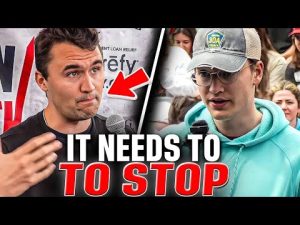Gavin Newsom’s recent attempts to rebrand himself as a moderate Democrat have faced intense scrutiny, particularly following his contentious interview with Bill Maher and broader criticism over California’s progressive policies. During the “Real Time” appearance, Newsom acknowledged the Democratic Party’s “toxic” brand, citing plummeting approval ratings (27% in NBC’s poll) and admitting public frustration with the party’s judgmental tone and “cancel culture”. This admission comes as he launches a podcast featuring conservative figures like Steve Bannon and Charlie Kirk—a move critics call a transparent bid to soften his image ahead of a potential 2028 presidential run.
Newsom’s defense of California’s radical transgender policies has undermined his moderate pivot. When pressed by Maher about a law allowing schools to withhold gender transition details from parents, Newsom dismissed teachers who inform parents as “snitches” and argued the policy merely prevents criminal penalties for educators. This stance clashes with growing bipartisan concerns about parental rights and child welfare, with even Maher highlighting the disconnect between Democratic elites and mainstream voters.
While Newsom claims his podcast fosters “dialogue,” skeptics like Emily Jashinsky and Eliana Johnson argue it’s a calculated effort to distance himself from his progressive record. His administration has expanded California’s government to historic sizes while promoting climate programs and DEI initiatives that critics label as overreach. The podcast’s focus on conservative guests appears aimed at countering his reputation for far-left governance, but his ongoing support for divisive policies like trans athletes in girls’ sports undermines this narrative.
Newsom’s sudden outreach to conservatives has done little to convince critics of his sincerity. His refusal to moderate on core issues like transgenderism and sanctuary cities—coupled with California’s rising cost of living and homelessness—fuels accusations that his “moderate act” is a hollow political maneuver. With Democratic approval hitting historic lows, Newsom’s balancing act between progressive governance and centrist branding risks satisfying neither base, leaving his national ambitions on shaky ground.







